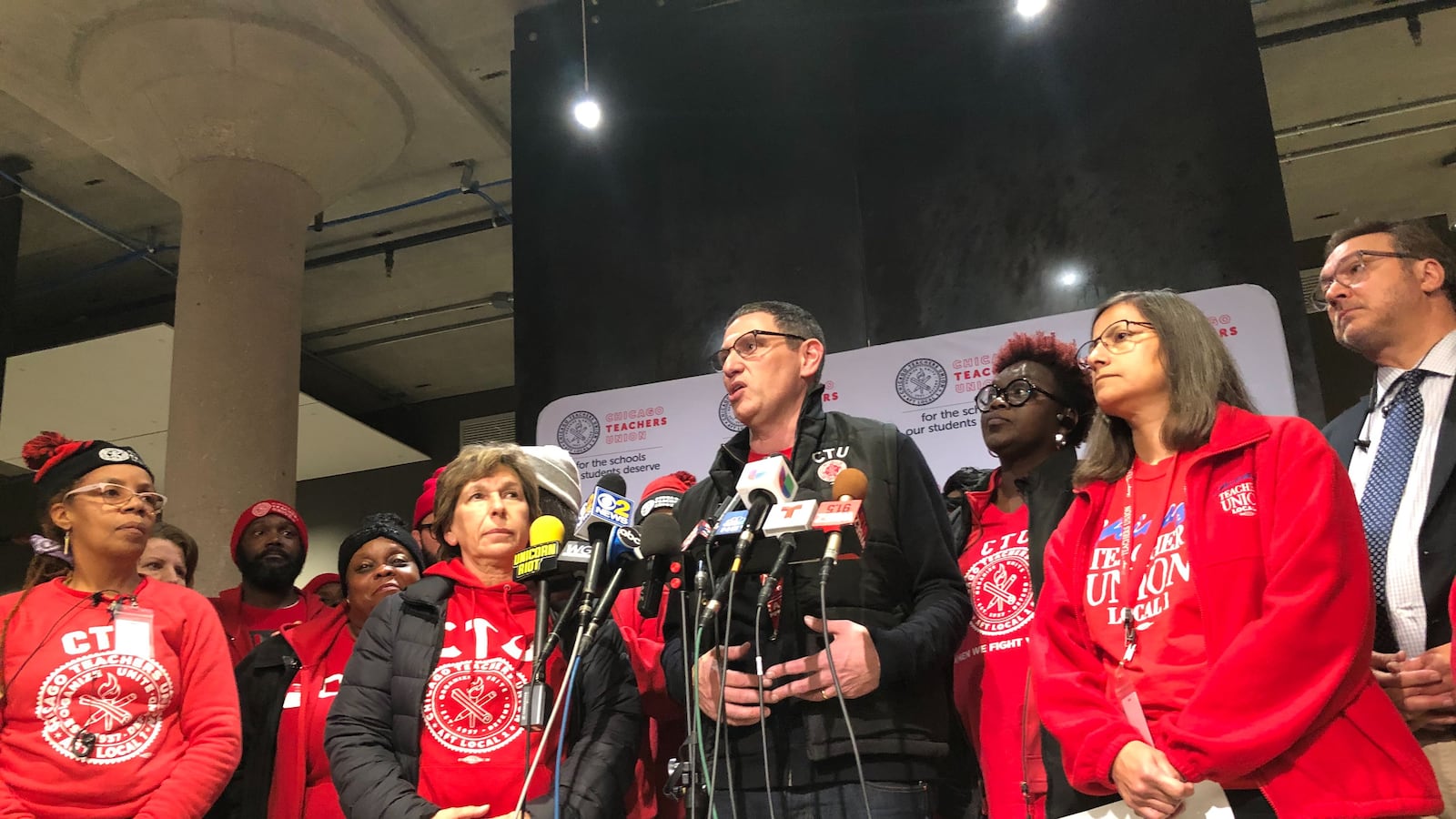One week after Chicago’s teachers union agreed on a tentative contract and suspended an 11-day strike, a threat to finalizing that agreement has cropped up: disagreement over how to parcel out raises for veteran teachers.
A key union demand, the raises surfaced in the last few days of negotiations between the union and Chicago Public Schools. The sides eventually settled on tacking on $5 million annually for pay raises for veteran teachers with 14 years or more experience, to total $25 million over the five-year contract.
But the tentative agreement does not spell out how those raises would be distributed, and there’s no resolution yet.
“The full pay schedule will be completed and communicated prior to the ratification of the contract,” reads the tentative agreement approved by the union’s House of Delegates last week.
The union wants the school district to divvy up the raises according to years of experience and put the contract’s salary schedule as “steps,” or set stages when the pay raises would kick in.
A spokeswoman for Chicago Public Schools declined to comment.
“We have every expectation that Chicago Public Schools will uphold their agreement to add the $25 million of veteran teachers’ pay through years of experience,” union President Jesse Sharkey said in a statement Thursday that was squarely aimed at Mayor Lori Lightfoot.
“This is an agreement that was made with Mayor Lightfoot in her office in the waning days of the strike in an effort to settle the strike. I think it’s impossible to believe that she’d be willing to look like a perjurer, blow up this agreement, and risk forcing our members to reject the contract or even return to striking over something that costs less than a fraction of one percent of the entire agreement.”
Last Thursday, the union’s 700-member House of Delegates voted 60% in favor of the tentative agreement, effectively ending the strike. Members will vote on ratifying the contract on Nov. 14 and 15.The union’s 25,000 teacher, clinician, and paraprofessional members will cast secret ballots at their schools or at the union’s headquarters.
A Chalkbeat Chicago survey that asked teachers to weigh in drew mixed responses. Veteran pay was among the issues that survey respondents questioned.
Even though the issue of veteran pay did not factor as prominently in the union’s daily strike updates, teachers on picket lines said it was a galvanizing factor among the more experienced — and respected — of their colleagues.
The previous contract’s pay schedule provided regular pay bumps for the first 12 years of experience, but increases are sporadic until teachers reach major benchmarks every five years or so. For example, a teacher with 15 years experience sees less than $200 added onto her base salary the following year before cost-of-living raises, according to analysis from the National Council on Teacher Quality.
“Your pay is frozen for a lot of that time,” said Meia Freidheim, a middle school science and math teacher at Orozco Elementary in Pilsen and a 23-year veteran of Chicago schools, on the second day of picketing. “In most professions as you get more experienced, you get more money. In teaching, that is only happening early in your career.”
Even with less frequent raises, several veteran teachers reported another problem: their higher pay limited their options to change campuses because schools regard them as more expensive hires.
“If a veteran wants to move schools, they have to move to a school that’s further south or has a higher poverty level,” since those schools tend to get more money and thus can hire teachers higher on the pay scale, said Brian Grauer, a first-grade teacher at Carnegie Elementary in the city’s Woodlawn neighborhood.
Are you a Chicago teacher who wants to weigh in on the tentative agreement? Take a brief survey here. Your comments could be included in a story.


